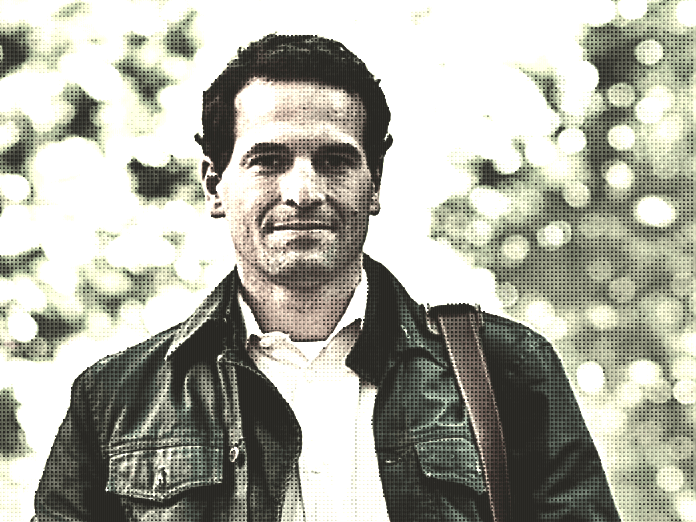
A panel discussion on whether or not Bitcoin is finished was featured on day one of Techcrunch Disrupt late last month, and the participants in the chat were Xapo CEO Wences Casares, BTCC (formerly BTC China) CEO Bobby Lee, and Nathaniel Popper of the New York Times. Although the future of Bitcoin is still largely unknown at this time, there is an increasingly large number of blockchain supporters who believe that Bitcoin could eventually be replaced by permissioned ledgers that do not require the creation of a new digital asset. Casares and Lee do not belong in that contingent of Bitcoin bashers, but Popper questions whether Bitcoin could be replaced by something better in the not-too-distant future. During the panel discussion, he noted:
“If [Bitcoin] succeeds, is it like the Internet — is it like the TCP/IP protocol — or is it like DARPANET? I think that’s actually the big question that faces Bitcoin right now. Is it the predecessor to the thing that matters or is it the thing that matters? . . . People are going to find ways to use [blockchain technology] in exciting ways. And the question is: Are they going to use Bitcoin’s decentralized spreadsheet or are they going to use a different kind of spreadsheet that they build or somebody else builds?”
For Popper, this is the debate that will ultimately decide Bitcoin’s fate.
There’s Nothing Revolutionary About a Private Database
After listening to Popper discuss the idea of banks creating their own, private blockchains, Xapo CEO Wences Casares explained that these permissioned ledgers are not much different from the private databases that have already existed for many years:
“That’s called a private database, and it has existed for a long time. What’s new about Bitcoin is that it’s a decentralized, trustless ledger. The second you do it your own it’s called a private database, and they have existed for a very long time. There’s nothing revolutionary about that.”
Popper then discussed the idea that dozens of banks could all operate on the same ledger, which could offer a few advantages over the current system such as more resiliency against possible network outages or downtimes. Casares admitted that this would be a slight improvement, but he still doesn’t see it as anything close to Bitcoin:
“Instead of running a database yourself, you run it in a joint venture with others. It’s a slight innovation, but I think it has nothing to do with a blockchain.”
Bitcoin Does Not Require Permission
It was at this point that BTCC CEO Bobby Lee decided to chime in on the matter. In an effort to backup Casares’s points and offer more clarity to their side of the argument, Lee explained that Bitcoin does not require anyone to get permission from a bank or government before they can use the digital cash system:
“The difference is that in the existing banking system and Visa — the so-called private ledger — is the rest of us cannot elect to join the party. It’s a boy’s club. Whereas with Bitcoin, anyone can join and become a participant within the ledger.”
The permissionless nature of Bitcoin is one of its key selling points, and this feature is enabled through the payment system’s decentralized nature. No one has to apply for access to a Bitcoin wallet; they can simply download one on their computer or smartphone. Developers also don’t need permission from anyone to build their own apps on top of the Bitcoin blockchain.
It’s Fashionable for Bank Executives to Say Blockchain, Not Bitcoin
Near the end of the panel discussion, the question of whether or not a blockchain needs a token, such as bitcoin, to function was brought up again. This time, Wences Casares attempted to explain how the idea of a blockchain without an underlying asset is ridiculous:
“If you’re a Visa executive, Bank of America executive, or a Wells Fargo executive, it has become very fashionable to say, ‘I really, really like the blockchain. I’m very interested in the blockchain, but I’m not interested in bitcoin,’ which is the equivalent of saying, ‘I really like the browser, but I don’t like the Internet.’ It’s ridiculous. Those people don’t want to be the ones who didn’t see the Internet coming, and they want to say something nice about it without saying something nice about it. They don’t realize that the blockchain does not work without bitcoin. The blockchain is the first decentralized, trustless database because the miners maintain it, and the miners do so because they get paid in bitcoin. Even though there are a lot of nice use cases on top of that, none of them work without the miners being paid with bitcoin.”
It’s possible that both permissioned and permissionless blockchains will last over the long term, but whether or not a shared ledger between a number of large banks should actually be called a blockchain is a legitimate question and a completely different discussion. For now, it seems clear that there will always be a need for a decentralized, low-trust system for online payments, such as the Bitcoin blockchain, due to the ongoing demand for censorship resistance.

